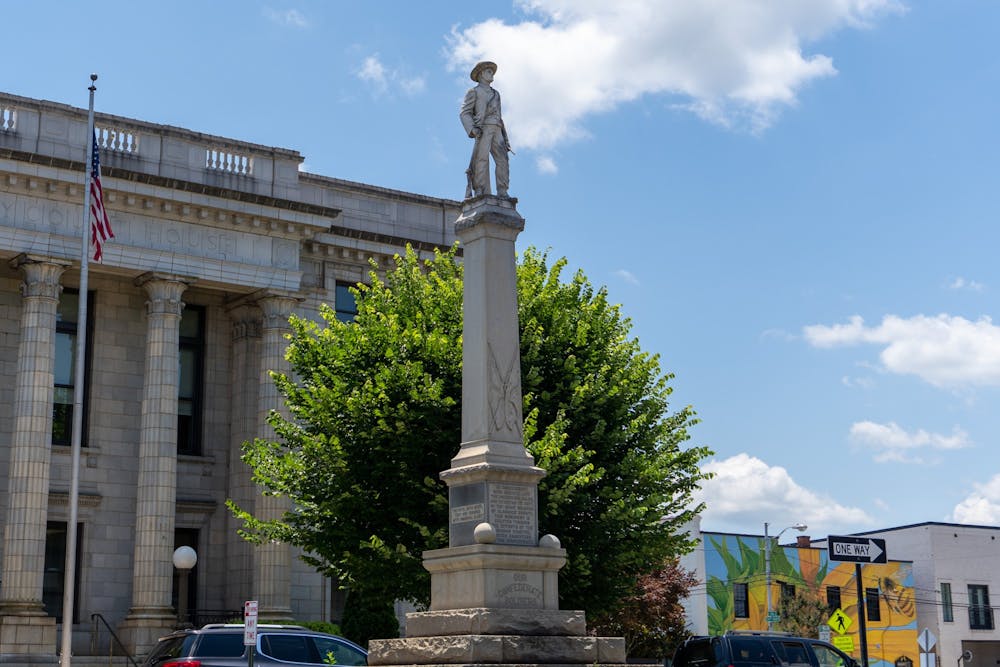Updated July 6 at 7:54 p.m. to include information on the temporary restraining order.
The American Civil Liberties Union, the ACLU of North Carolina, the Lawyer's Committee for Civil Rights Under Law and the Lockamy Law Firm filed a lawsuit and temporary restraining order against the city of Graham and Alamance County officials, including Graham Chief of Police Jeffrey Prichard and Alamance County Sheriff Terry Johnson. The lawsuit was filed on behalf of the Alamance County chapter of the NAACP and eight protesters.
The lawsuit challenges Graham’s code of ordinances on granting protest permits, claiming it is unconstitutional, as well as the refusal to grant permits.
“The Ordinance is an unconstitutional prior restraint on First Amendment rights to free speech and assembly, violates the First Amendment’s prohibition against unreasonable and content-based time, place and manner restrictions of speech in traditional public forums and violates due process because it is void for vagueness,” according to the lawsuit.
The Graham Police Department is responsible for permit applications for group demonstrations, which is defined in the city’s code of ordinances as two or more people protesting. No protest is allowed on public property without a permit, according to Chapter 18 Section VI of Graham’s code of ordinances.
“No parade, picket line or group demonstration is permitted on the sidewalks or streets of the city unless a permit therefor has been issued by the city; provided, however, that nothing in this section shall be construed to prevent the peaceful assembly of any group for orderly expression or communication between those assembled,” the ordinance says.
The ordinance authorizes the Graham chief of police — or Graham’s highest-ranking officer in their absence — to deny a permit.
“ [The chief of police can] refuse to issue such permit when the activity or purpose stated in the application would violate any ordinance of the city or statute of the state, or when the activity or purpose would endanger the public health or safety, or hinder or prevent the orderly movement of pedestrian or vehicular traffic on the sidewalks or streets of the city,” the ordinance says.
This lawsuit comes after the Alamance County Sheriff’s Office said on June 26 that Graham would not be granting permits to protest at the courthouse for the “foreseeable future.”
The following day, on June 27, Graham extended its state of emergency declaration, which has since been rescinded. The amended declaration imposed an 8 p.m. curfew “due to the potential for damage or injury, due to civil unrest.”
This was after a press release from Graham Police said the department was made aware of a peaceful protest without a permit, which was dispersed. However, a separate group was planning a protest they believed to be violent.
According to the lawsuit, all plaintiff’s in the case plan to protest in Graham or at the Confederate monument “in the near future.”
On July 6, a judge granted the temporary restraining order. This order temporarily blocks the Graham ordinance that requires a protest of two or more people to obtain a permit.
The president of the Alamance County chapter of the NAACP, Barret Brown, said the denial of permits for the “foreseeable future,” is a violation of the rights to protest.
“Peace and justice should belong to everyone, everywhere and all the time,” Brown said in a press release. “The city’s permit requirement and periodic protest ban violate our most fundamental rights to peacefully assemble and petition our government for redress.”
The lawsuit comes after the ACLU of North Carolina sent a letter to the sheriff’s office over concerns about the denial of protest permits demanding the sheriff’s office retract the permit denial and affirm the right to “gather and demonstrate peacefully in Graham without a permit.”


